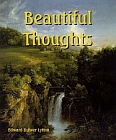
Celsus, Porphyry, and Emperor Julian Against the Christians

Description
and Emperor Julian
Against the Christians
Extracts From Diodorus Siculus,
Josephus, and Tacitus
Relating to the Jews
Together With An Appendix Containing:
the Oration of Libanius
In Defence of the
Temples of the Heathens,
Translated By Dr. Lardner;
and Extracts from Bingham's Antiquities
of the Christian Church.
By
Thomas Taylor
Dr. Lardner
Diodorus Siculus
Josephus
Tacitus
Libanius
THE Christians are accustomed to have private assemblies, which are forbidden by the law. For of assemblies some are public, and these are conformable to the law of the land; but others are secret, and these are such as are hostile to the laws; among which are the Love Feasts of the Christians
Print size, 15 point font
**************
Excerpt:
"The Christians at first, when they were few, had but one opinion; but when they became scattered through their multitude, they were again and again divided into sects, and each sect wished to have an establishment of its own. For this was what they desired to effect from the beginning.
"But after they were widely dispersed one sect opposed the other, nor did any thing remain common to them except the name of Christians; and even this they were at the same time ashamed to leave as a common appellation: but as to other things, they were the ordinances of men of a different persuasion.
"What however is still more wonderful is this, that their doctrine may be [easily] confuted, as consisting of no hypothesis worthy of belief. But their dissension among themselves, the advantage they derive from it, and their dread of those who are not of their belief, give stability to their faith.
"The Christians ridicule the Egyptians, though they indicated many and by no means contemptible things through enigmas, when they taught that honours should be paid to eternal ideas, and not, as it appears to the vulgar, to diurnal animals ." Celsus adds, that "The Christians stupidly introduce nothing more venerable than the goats and dogs of the Egyptians in their narrations respecting Jesus.
"What is said by a few who are considered as Christians, concerning the doctrine of Jesus and the precepts of Christianity, is not designed for the wiser, but for the more unlearned and ignorant part of mankind. For the following are their precepts: 'Let no one who is erudite accede to us, no one who is wise, no one who is prudent (for these things are thought by us to be evil); but let any one who is unlearned, who is stupid, who is an infant in understanding boldly come to us.' For the Christians openly acknowledge that such as these are worthy to be noticed by their God; manifesting by this, that they alone wish and are able to persuade the ignoble, the insensate, slaves, stupid women, and little children and fools.
"We may see in the forum infamous characters and jugglers collected together, who dare not show their tricks to intelligent men; but when they perceive a lad, and a crowd of slaves and stupid men, they endeavour to ingratiate themselves with such characters as these.
"We also may see in their own houses, wool-weavers, shoemakers, fullers, and the most illiterate and rustic men, who dare not say any thing in the presence of more elderly and wiser fathers of families; but when they meet with children apart from their parents, and certain stupid women with them, then they discuss something of a wonderful nature; such as that it is not proper to pay attention to parents and preceptors, but that they should be persuaded by them. For, say they, your parents and preceptors are delirious and stupid, and neither know what is truly good, nor are able to effect it, being prepossessed with trifles of an unusual nature.
128 pages - 7 x 8½ softcover
















